Oesophagus cancer: 'Game-changer' sponge checks launched
- Published
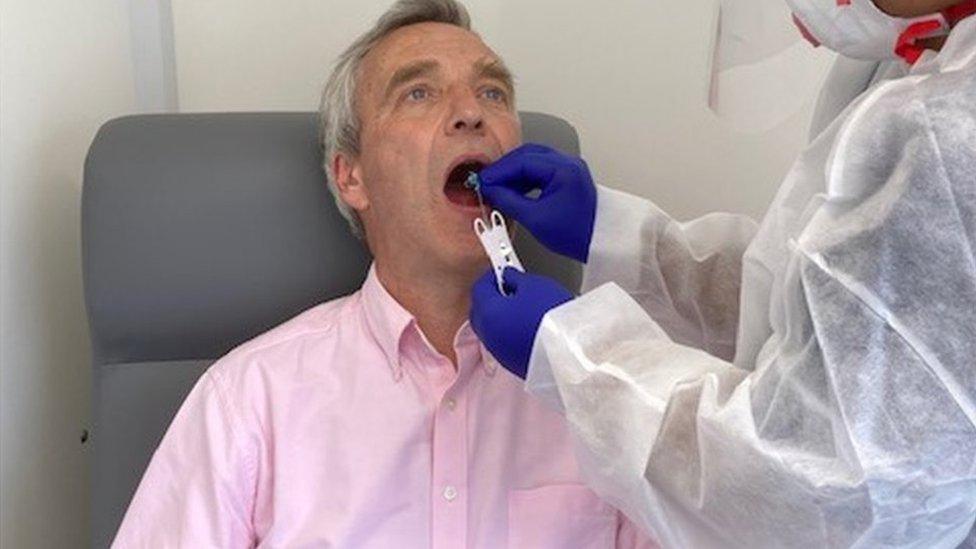
The procedure involves the patient swallowing a pill which dissolves allowing a sponge to collect cells for testing
A "game-changer" pill containing a sponge that can detect early signs of oesophageal cancer is being trialled in a mobile unit.
The cytosponge was developed at the University of Cambridge and collects cells which are tested at a laboratory.
It is hoped the test will cut waiting times because patients usually require an endoscopy in hospital.
Prof Rebecca Fitzgerald from the university said the test was "really simple and straightforward".
Early signs of oesophageal cancer, the seventh most common cause of cancer deaths in the UK, are often mistaken for heartburn.
A mobile unit will perform the test at GP surgeries in Cambridge from 11 June, before moving on to Essex and Suffolk.
Prof Fitzgerald, who specialises in cancer prevention, said the cytosponge "can diagnose cancer of the oesophagus really early".
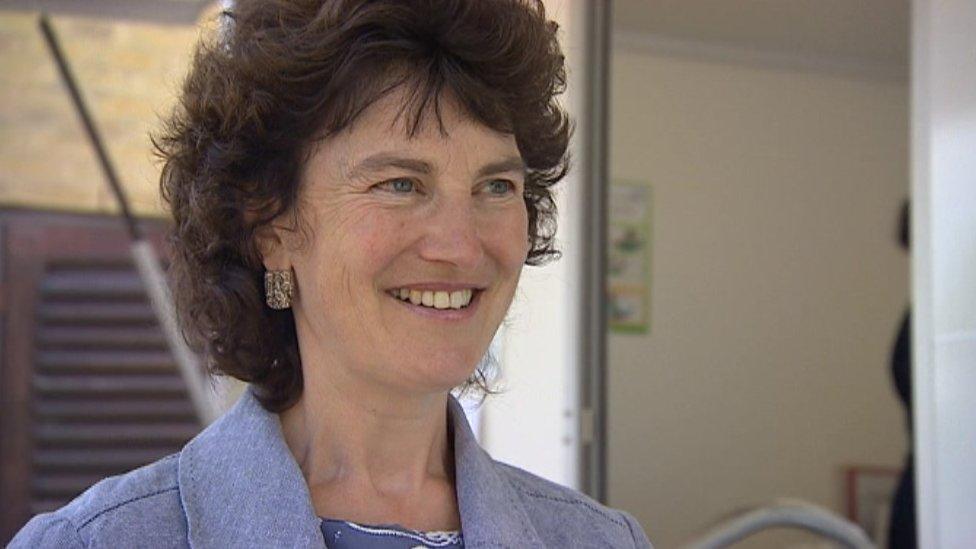
Prof Rebecca Fitzgerald said the sponge test could be uncomfortable but was much more preferable to an endoscopy
She said it could detect a pre-cancerous condition called Barrett's oesophagus, external.
"Usually you would have to go to the hospital and get an endoscopy, with all that entails, and our idea was could you make something that was so simple you could go to a mobile unit or GP surgery," Prof Fitzgerald said.
"The simplicity is the absolute key of this - we know the power of diagnosis is in the cells you collect."
She added that because of Covid-19 "some endoscopy has been completely on hold so you might have to wait months" for the procedure, where a long, thin tube with a camera is sent down the patient's mouth and throat.

How the cytosponge works
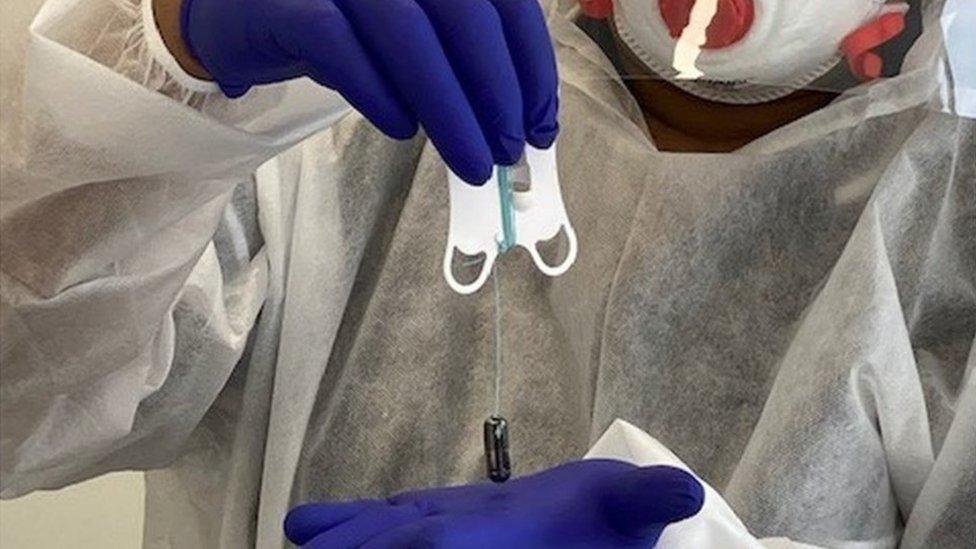
Prof Fitzgerald explained: "You swallow the capsule on a string with water and it will go down to the top of the stomach.
"The capsule will dissolve in five to seven minutes, and as it dissolves out pops a sponge which has been compressed in that capsule.
"The nurse simply pulls the sponge out with the string and it will collect about a million cells on its way out.
"We put that sponge into a preservative, send it to the laboratory where it is tested to see whether there are Barrett cells or not and whether the cells look like they are turning to pre-cancer.
"Then we can let the patient know and if there is anything to worry about they can have an endoscopy and treatment."
In total the procedure takes about 10 minutes.

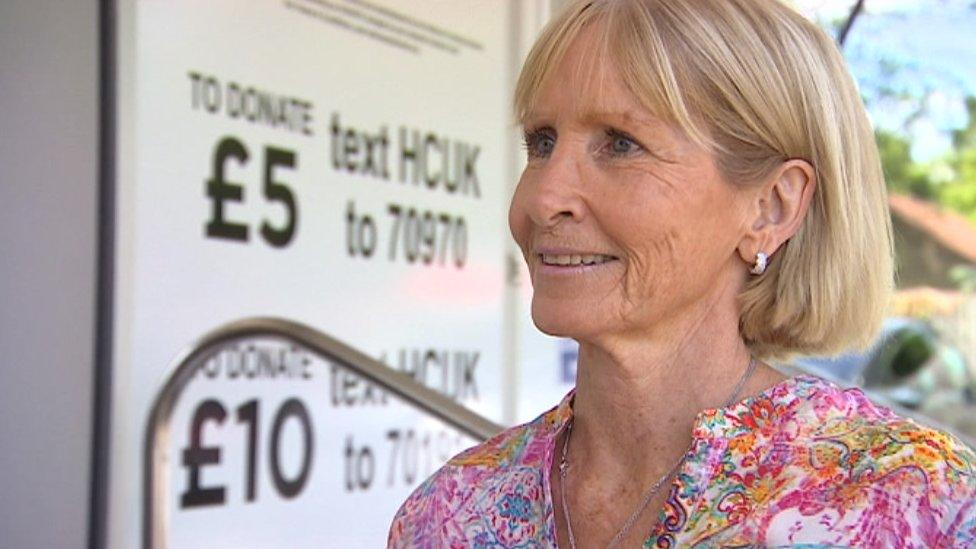
Mimi McCord, chairman of Heartburn Cancer UK, said she was "grimly determined" to promote the sponge
The unit has been funded and equipped jointly by Heartburn Cancer UK (HCUK), a charity founded by Mimi McCord after her husband died from oesophageal cancer.
"What I know now would have saved his life and I am grimly determined that a difference will be made to other people," she said.
She added that the sponge test was "minimal; it's like swallowing a pill; it's a game-changer; it's so different to an endoscopy".
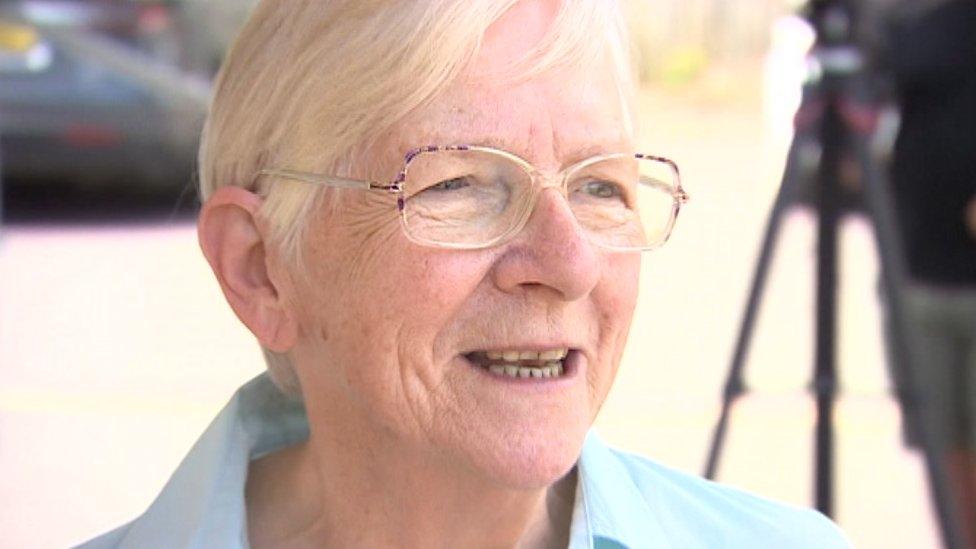
Elizabeth Chipchase said the sponge test led to her cancer diagnosis
Elizabeth Chipchase took part in trials of the sponge test after being invited by her GP because she "had acid reflux for many years".
The 71-year-old from Cambridge said the procedure was "really simple" and she discovered she had Barrett's oesophagus.
She then had an endoscopy and doctors found she had cancer.
But because she had the sponge test "the great thing was the cancer was caught at a very early stage and could be removed quite straightforwardly and since then I've been fine".

Find BBC News: East of England on Facebook, external, Instagram, external and Twitter, external. If you have a story suggestion email eastofenglandnews@bbc.co.uk, external
Related topics
- Published4 November 2014
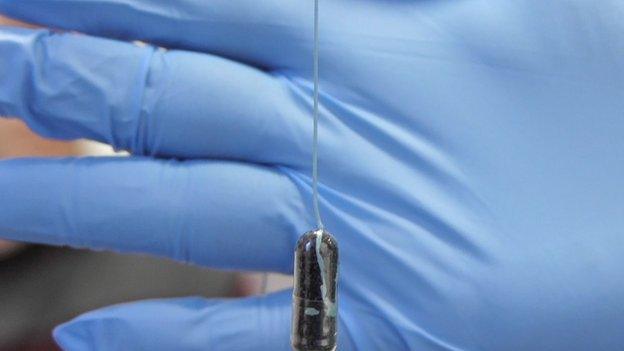
- Published4 June 2011
- Published10 September 2010